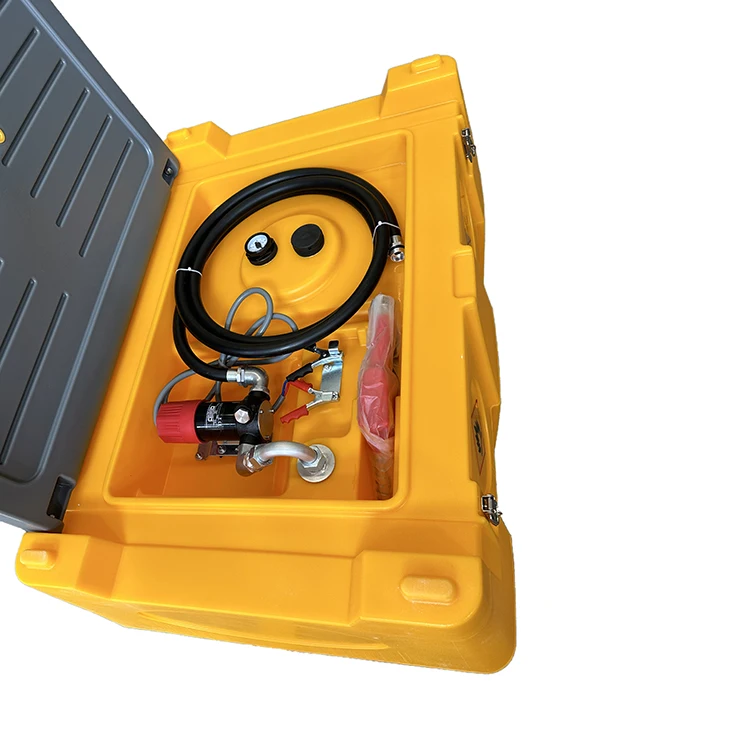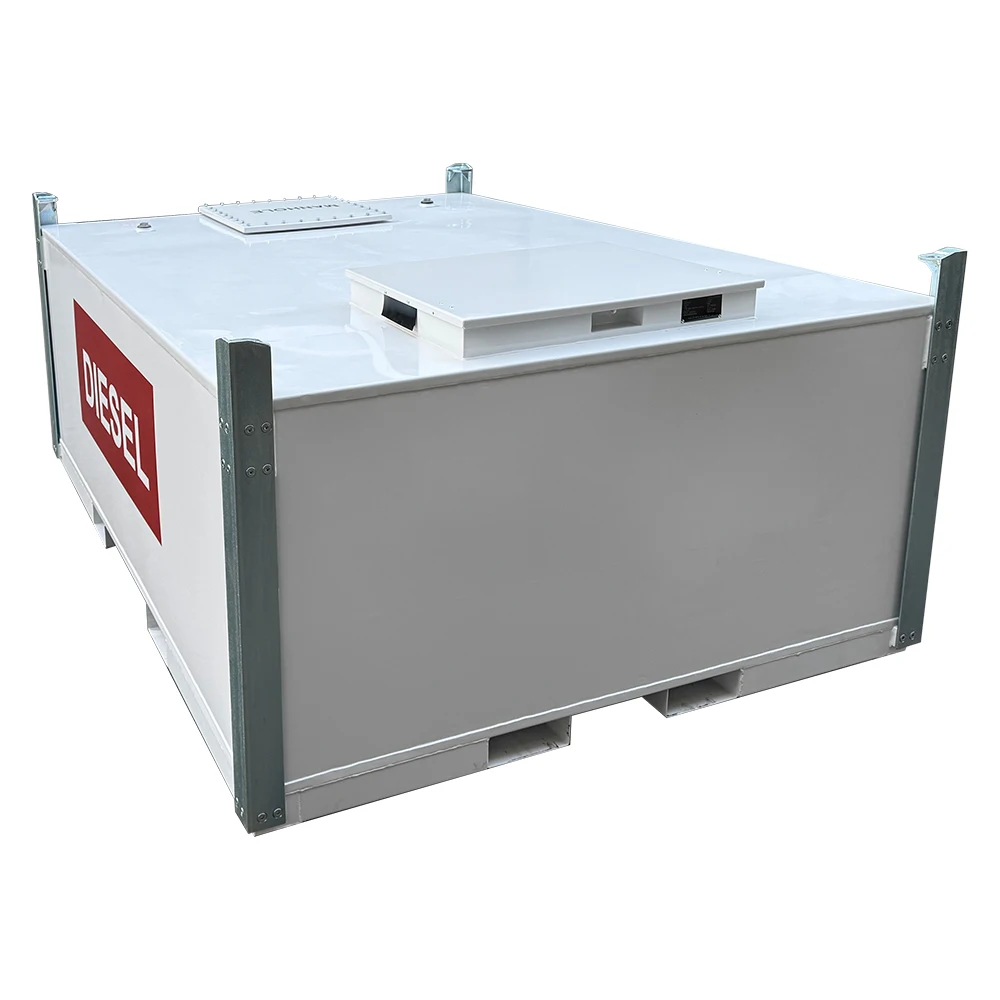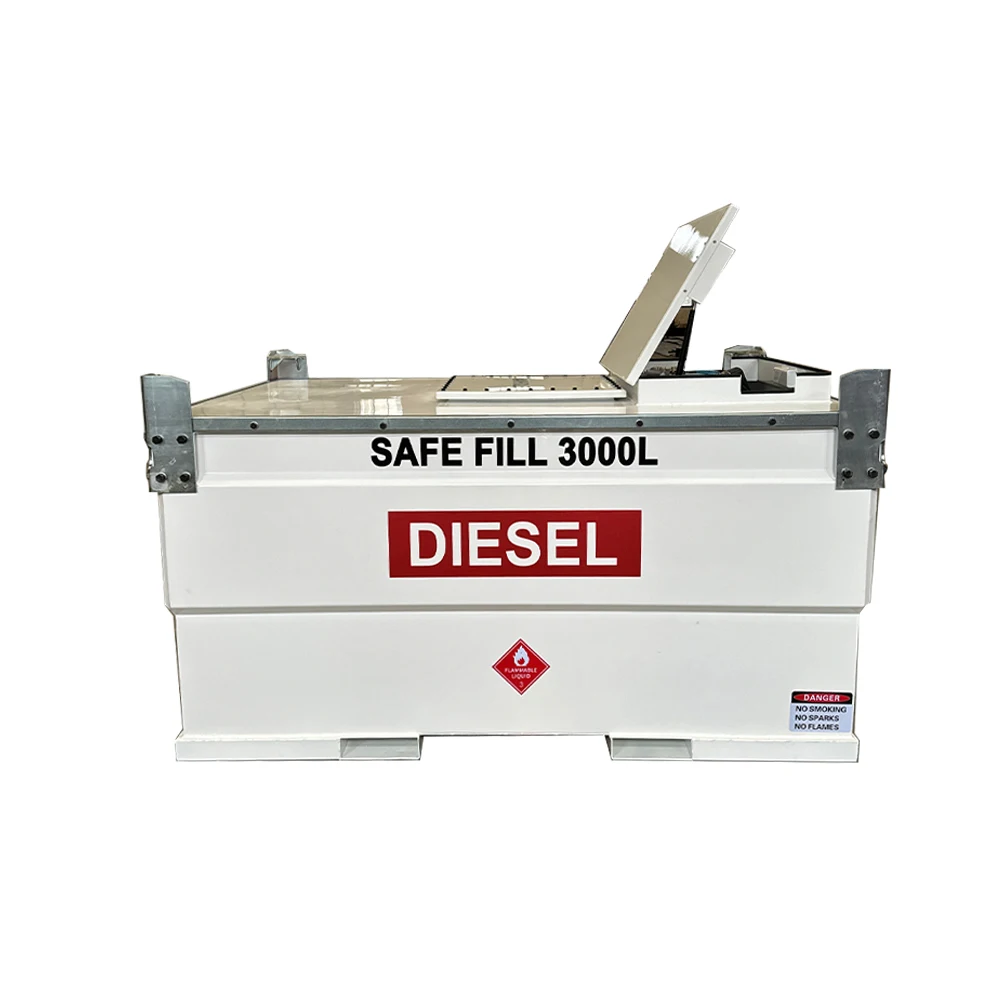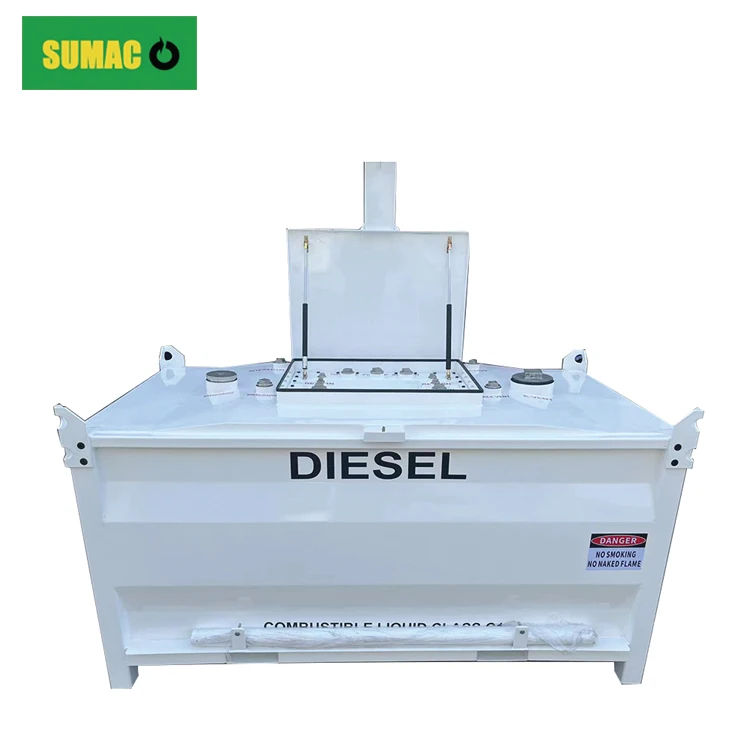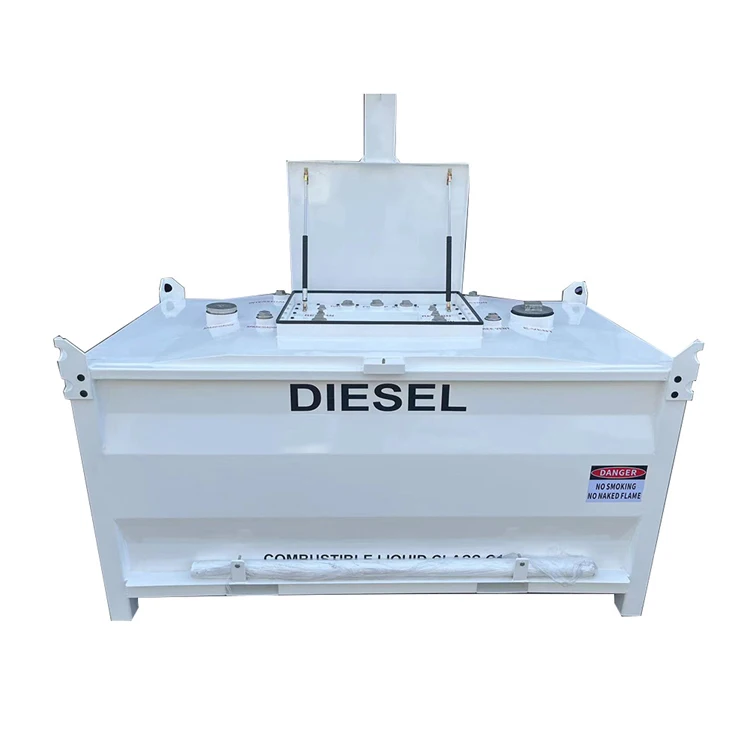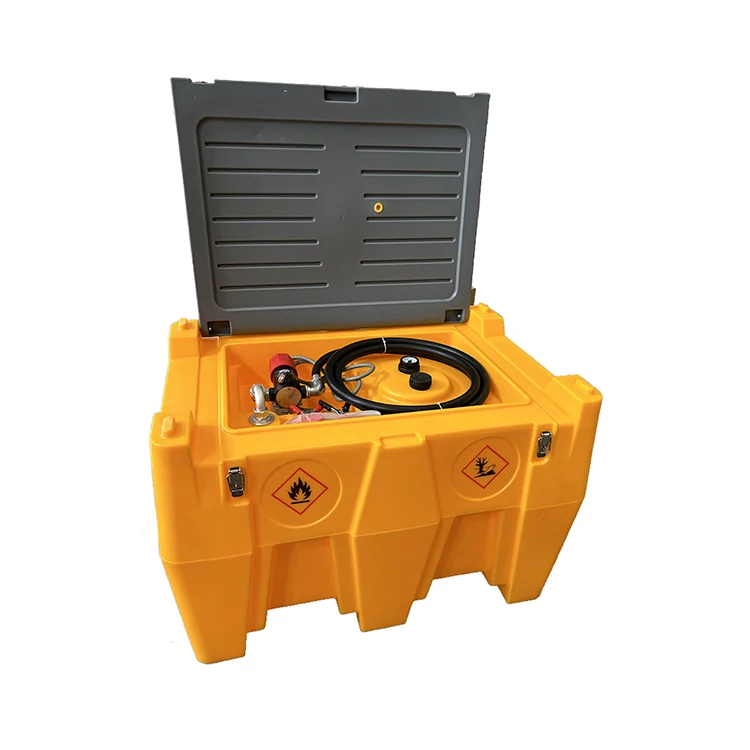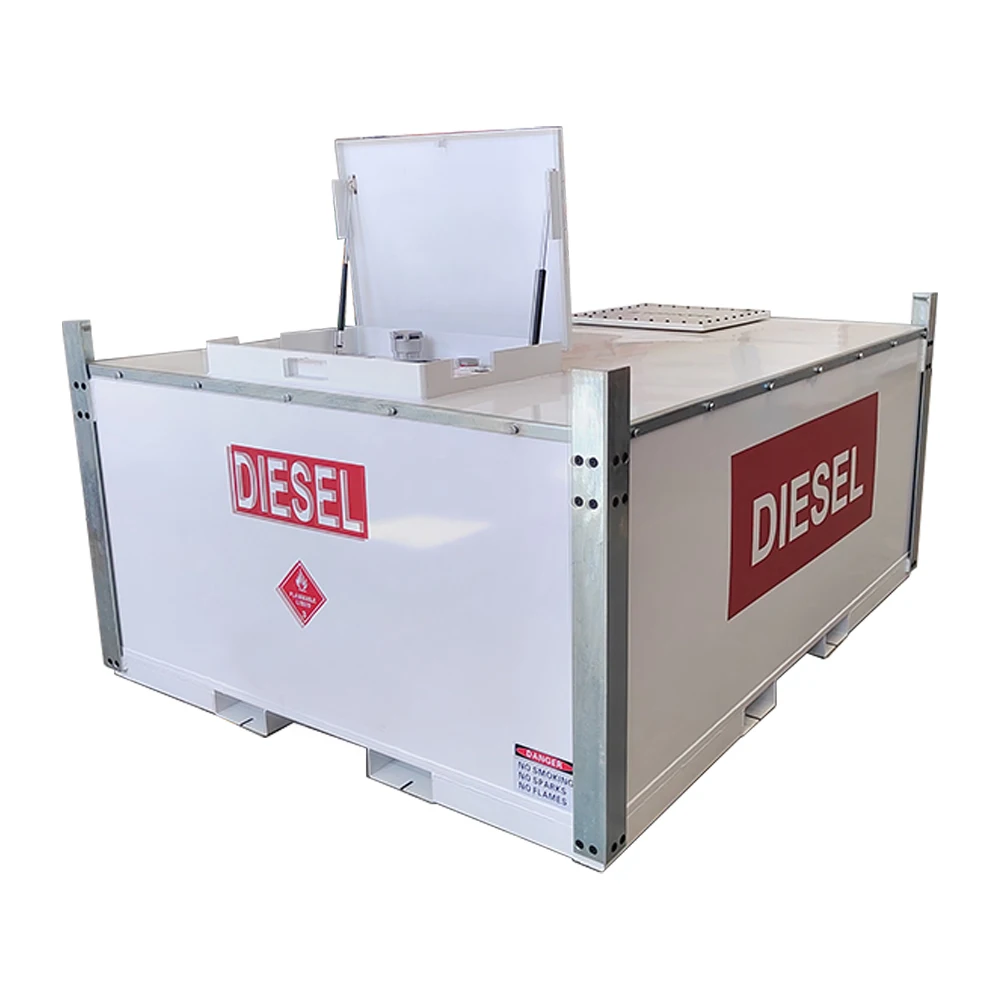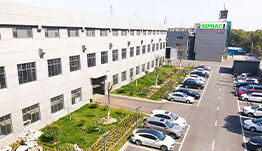Self bunded diesel fuel cube tank sale for Ecuador
A self - bunded diesel fuel cube tank is a type of storage tank with several important characteristics:
1. Structure and Design
Cube - shaped: As the name implies, it has a cubical geometry. This shape provides a relatively compact and space - efficient design, making it suitable for installations where space is a consideration. For example, in small industrial sites or at construction sites where it needs to fit into a defined area without taking up excessive space.
Self - bunded: The key feature is the self - bunding. The tank is constructed with an outer and an inner wall. The space between these two walls (the bund area) acts as a containment area. In case of a leak from the inner tank that stores the diesel fuel, the fuel will be contained within this outer bund area. This containment system helps prevent the fuel from spilling out into the environment and causing pollution, such as contaminating soil or water sources. The bund area is typically designed to hold a volume of liquid equal to at least 110% of the volume of the inner tank.
2. Materials and Construction
Material: These tanks are usually made of high - quality steel. The steel is often treated to resist corrosion from the diesel fuel and environmental factors such as moisture. For example, it may be coated with special anti - corrosive paints or linings. Some advanced models might also use composite materials that offer both strength and corrosion resistance.
Construction Standards: They are manufactured according to strict safety and quality standards. Welds are carefully inspected to ensure they are leak - proof. The fittings and connections, such as the fuel inlet, outlet, and ventilation pipes, are also designed to be secure and to prevent leaks.
3. Uses and Applications
Fuel Storage: The primary use is to store diesel fuel. This is crucial for a variety of applications. In the transportation industry, it can be used to store fuel for a fleet of vehicles such as trucks or buses. At construction sites, it provides a convenient on - site fuel storage solution for heavy machinery like excavators and bulldozers.
Backup Power Systems: They are also used to store fuel for backup generators. In hospitals, data centers, and other critical facilities, having a reliable supply of diesel fuel stored in these tanks is essential to ensure that generators can operate during power outages.
4. Safety and Regulatory Considerations
Safety: There are safety features such as vents to allow for the release of pressure caused by temperature changes and the expansion of the fuel. Flame arrestors are often installed on the vents to prevent the ignition of fuel vapors. Additionally, the tanks are usually located in well - ventilated areas to reduce the risk of the buildup of explosive fuel vapors.
Regulations: Their design, installation, and use are subject to numerous regulations. These regulations vary by region and are aimed at ensuring environmental protection and safety. For example, there are requirements regarding the distance of the tank from buildings, water sources, and other infrastructure to minimize the risk of damage and pollution in case of an incident.
https://www.sumachine.com/
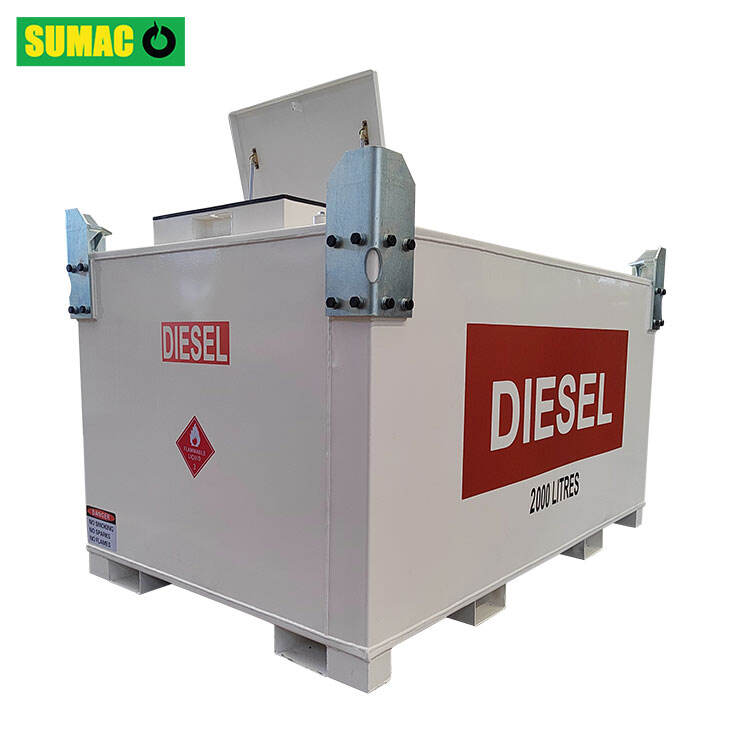
Recommended Products
Hot News
-
Double wall portable diesel gasoline cube tank with pump sale for Mauritius
2024-11-11
-
Double Walled Portable Fuel TransferCube Tank Ship To Spain
2024-11-07
-
Shipping of portable aviation fuel tank with pump
2024-10-12
-
Carbon steel diesel fuel cube tank ship to USA
2024-11-14
-
Carbon steel cube tank with pump
2024-11-13
-
Fuel Transfer Tank Cube Stationary Double Walled Diesel Storage Tank Sale For Spain
2024-11-06
-
251 US Gallon 552 Gallon Fuel Cube Transfer Tank Sale For USA
2024-11-05
-
251-2000 Gallon Fuel Cube Transfer Tank Sale For Grenada
2024-11-01
-
552 Gallon portable fuel dispenser with tank sale for USA
2024-10-30
-
Mobile fuel tank with pump sale for Spain
2024-10-22
 EN
EN
 AR
AR
 BG
BG
 HR
HR
 CS
CS
 DA
DA
 NL
NL
 FI
FI
 FR
FR
 DE
DE
 EL
EL
 IT
IT
 JA
JA
 KO
KO
 NO
NO
 PL
PL
 PT
PT
 RO
RO
 RU
RU
 ES
ES
 SV
SV
 TL
TL
 ID
ID
 LT
LT
 SR
SR
 SK
SK
 SL
SL
 UK
UK
 VI
VI
 HU
HU
 TH
TH
 TR
TR
 MS
MS
 GA
GA
 IS
IS
 KA
KA
 HT
HT
 KK
KK
 UZ
UZ


